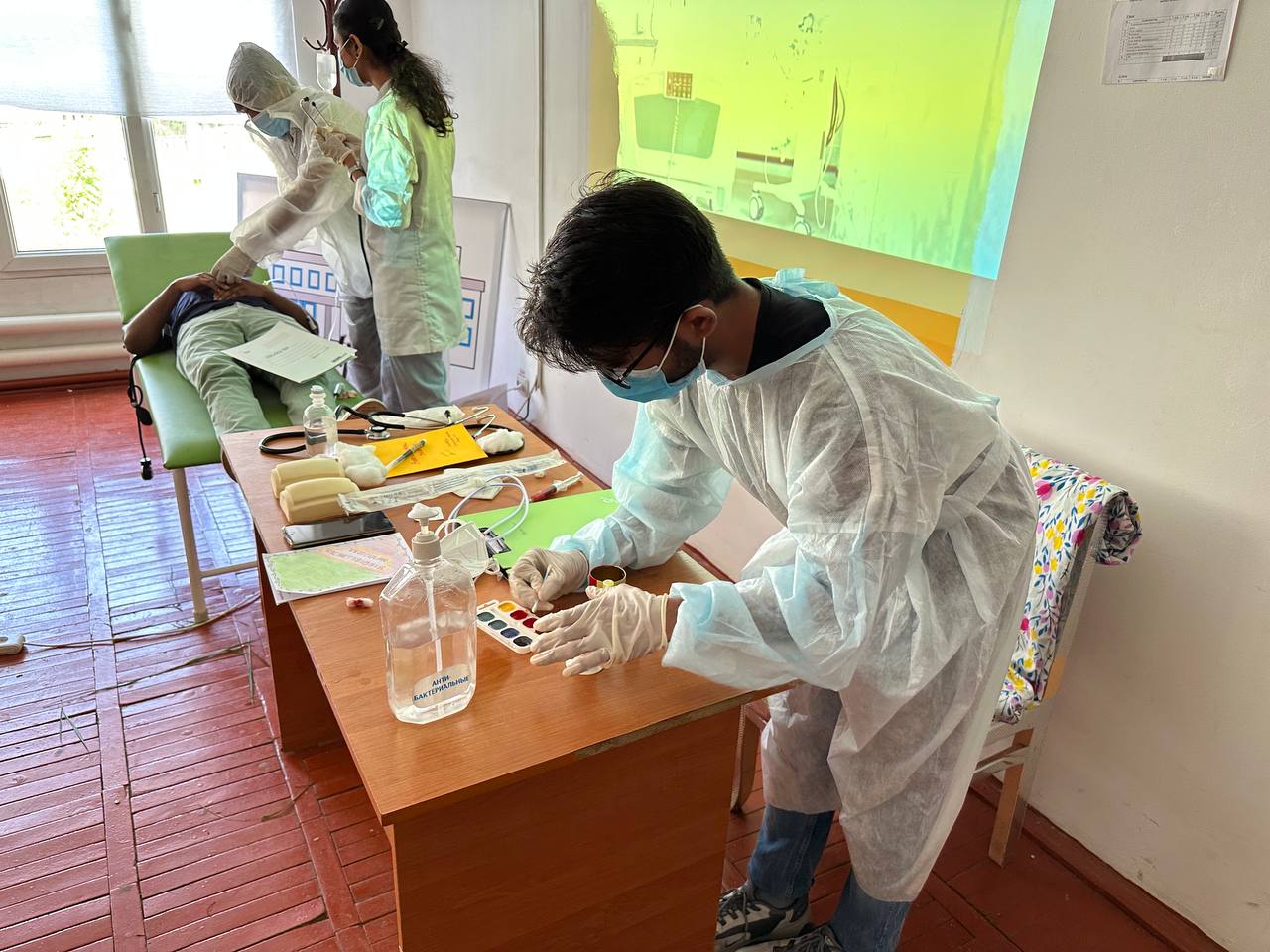
DEMONSTRATION OF THE INTERACTIVE PROBLEM-ORIENTED LEARNING METHOD “CONSILION” ON THE SUBJECT OF INFECTIOUS DISEASES.
April 29, teachers of the department on the subject of Infectious diseases Satybaldyev M.M., Abdimomunova B.T., Abzhaparova A.Z., Mamatkulova N.M. together with 4th year students demonstrated an interactive teaching method in lecture hall 213 at IMF. Students prepared a specific clinical case of a patient with anthrax at the polyclinic level – cutaneous anthrax, at the hospital level – intestinal anthrax and a severe case of sepsis at the level of a council of doctors of different specialties. The experts were the head of the department A.K. Turusbekova, the epidemiologist Dautov T.T., and the teacher of the department Omoralieva D.A.
At the beginning of the demonstration, the instructors gave a brief description of this teaching method. The council is a problem-based learning that successfully combines theory and practice. The consultation method is referred to as empirical methods of research, which are based on practical actions and allow an objective assessment of the real situation. In a general sense, the council involves a meeting of future doctors in a certain field of specialists, related to the discussion of a specific phenomenon / process and the solution of an urgent problem. The application of this methodology for evaluating the results of a student and the work of a doctor is possible under specific conditions: The council may include a III-level system of medical care: a polyclinic, a clinical diagnostic center, a hospital and experts. The meeting of the council is held strictly according to a specific clinical situation. Participants are maximally involved in the educational process, study case histories on specific clinical examples, answer questions, argue, try to reach a compromise, learn to provide medical care at various levels of health care. The result of each depends on the degree of his involvement and well-coordinated teamwork.
This teaching method will help students improve their clinical skills in the subject of Infectious Diseases, the advantage of this method is the organization of medical care for patients at various levels of health care with the identification of defects and with further correction of patient management tactics. Thus, students have a complete picture of this nosology: diagnosis, treatment, prevention. Based on the data obtained during the consultation, a further action plan is being formed, the possibility of developing professional competencies among students in the educational program is increased.
As a result, students at different levels of healthcare showed excellent training in providing medical care to patients. This teaching method is practiced in the practical classes of the subject Infectious Diseases for 4th year students.




























